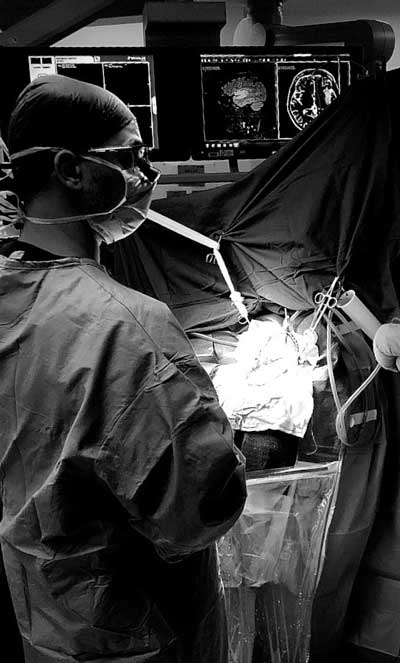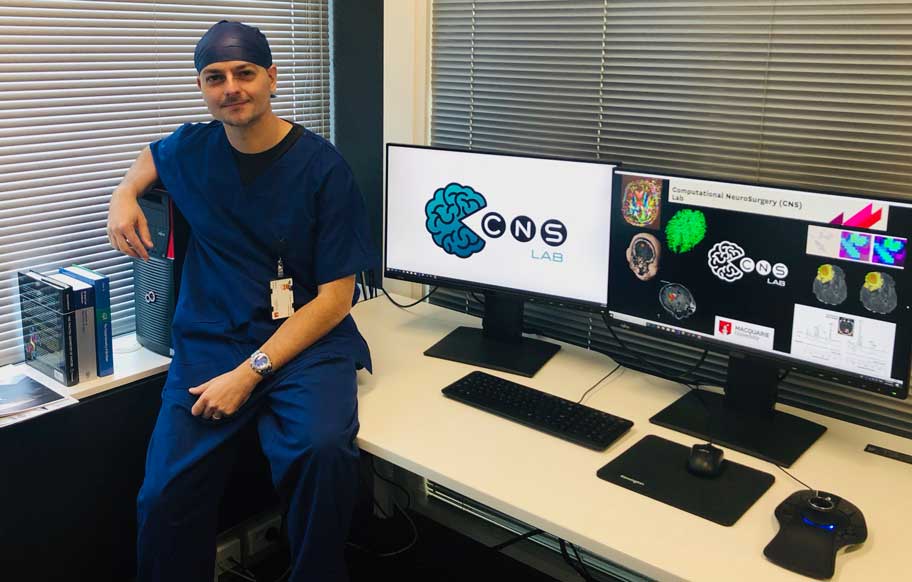Brain Tumour Awareness Month 2020: Prof Antonio Di Ieva
Professor Antonio Di Ieva predicts and hopes that brain cancer will be a manageable chronic disease “much like diabetes” by 2030, and patients will have a vastly improved quality of life.
Speaking to Specialised Therapeutics to mark Brain Tumour Awareness Month, the accomplished neurosurgeon, who has performed more than 2000 brain surgeries in the past 15 years, also expects that while the diagnosis of brain cancer appears to be increasing, neurosurgeons will be doing less brain surgery in the next few decades, as personalised therapies move to the forefront of brain cancer treatment.

“I believe it is achievable for us to be able to treat and manage patients with glioblastoma (GBM) as long-term survivors by 2030,” he said. “While it is going to be very difficult for us to say to anyone ‘you are GBM free’, I hope that within the next ten years, we will have therapies that can help patients live with the illness for a long time. I also hope and expect that we will be able to give them a better quality of life than we are able to give them currently.”
And the decades post 2030 could herald even greater advances.
“In the longer term – by 2040 or 2050 – I am certain there will be less surgery required. Although it is the current state-of-the-art, it is primitive to think we can keep cutting away at the brain in the next decades,” Professor Di Ieva says.
“While we will still remove benign tumours, pituitary tumours, meningiomas, I am certain that cancers like glioblastoma will be more commonly treated with advanced chemotherapies, or genetic therapy or immunotherapy with a specific vaccine. As neurosurgeons we will do less from a surgical point of view, but more in terms of patients’ management and research.”
The past decades have been relatively stagnant in terms of improving survival outcomes for GBM patients, but Professor Di Ieva believes “quality of life has improved a lot”.
“Over the next five years we can expect to see even greater improvements.
“What is important is ensuring that patients can continue doing normal activities – things like staying at work, keeping up with their hobbies and continuing to drive.
“We want to help people remain independent for as long as possible. This is an achievable goal.”
All progress is backed by solid research and for Professor Di Ieva, studying the brain is endlessly fascinating, both scientific and philosophically.
He is firmly positioned at the forefront of Australian brain research, establishing the world’s first computational neurosurgery laboratory at Macquarie Health.
Late last year, he was awarded the John Mitchell Crouch Fellowship by the Royal Australasian College of Surgeons (RACS), the premiere surgical research award of the RACS, as well as a $1,015,000 Australian Research Council (ARC) Future Fellowship to enable the creation of new artificial intelligence tools that will improve standard brain imaging, tumour detection and classification.
“Improved artificial intelligence will be a key feature moving forward – these are the tools that will assist us to diagnose better, to understand more and use this information to improve outcomes,” he says. Now Prof Di Ieva is supporting the creation of the “augmented” multidisciplinary team (MDT) of the future, where MDT-related decision-making can be enhanced by means of the use of the machine, as emphasised in his recent publication on The Lancet.
“It is through research we make real progress and brain cancer patients should know we are working tirelessly to make a difference.”
Professor Antonio Di Ieva is a full-time consultant neurosurgeon at Macquarie Neurosurgery / Macquarie University Hospital, Associate Professor at Macquarie University, full professor of Neurosurgery in Italy, Associate Professor of Neuroanatomy in Austria and head of the Computational NeuroSurgery (CNS) Lab at Macquarie University. He spoke with ST in May 2020.





